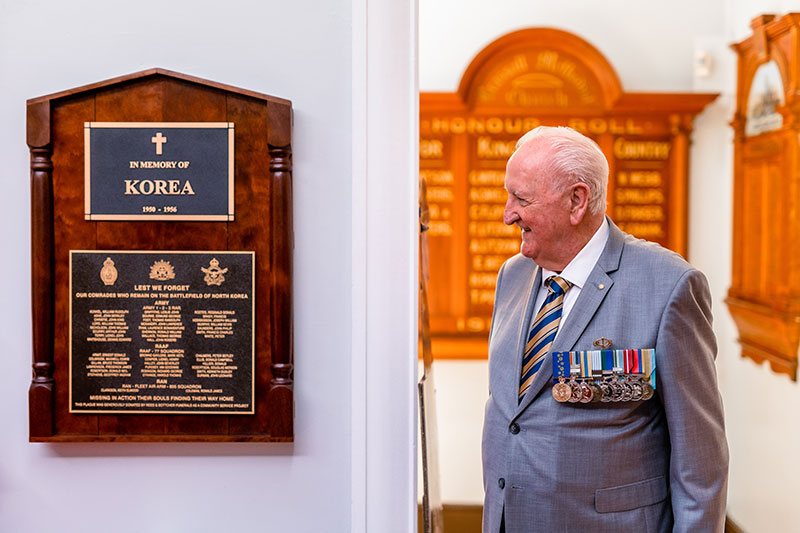On Korean Veterans’ Day, we commemorate the men and women who served in the Korean War.
Korean Veterans’ Day is held on the anniversary of the armistice that ended the fighting. On 25 June, DVA held a National Commemorative Service that marked 75 years since the start of the Korean War when North Korean forces invaded South Korea.
Among the more than 18,000 Navy, Army, and Air Force personnel who served, 367 lost their lives: 340 in the Korean War, 16 while monitoring the ceasefire after the armistice, and 11 in the support base in Japan. We remember all who served including those wounded, those taken prisoner, and those who lost their lives, including over 40 who have no known grave.
The armistice was reached after 158 negotiation meetings between the warring sides spanning 2 years and 17 days. On 27 July 1953, at Panmunjom, representatives of the United Nations Command, North Korea and China signed 18 copies of the tri-language Korean Armistice Agreement. Some Australian defence personnel remained in Korea until 1957 as part of a multinational peacekeeping force.
The Korean War was a globally significant conflict at the height of the Cold War. The war in Korea is sometimes referred to as a 'forgotten war,’ overshadowed as it was by the Second World War and the Vietnam War. However, Australia recognised the significance of this conflict and answered the call from the United Nations to help defend South Korea. On Korean Veterans’ Day, we honour those who served, reflect on their sacrifices and the lasting impact of their contributions.
Among them, Matthew Rennie OAM’s story stands as a powerful reminder of why we must never forget.
At just 19 years old, Matthew arrived in Pusan, South Korea, in 1952 as a newly trained soldier posted to the 3rd Battalion, Royal Australian Regiment (3RAR). During his service, Matthew survived a harrowing night on 24 May 1953. A bullet struck the back of his head, piercing his helmet but fortunately only grazing his skull. His best mate, Frank, fired back and then tended to Matthew’s wound.
Matthew dedicated his life to ensuring veterans of all conflicts received proper recognition for their service. In 2002, he discovered that 72 veterans were buried in unmarked graves in the Australian Imperial Force section at Ipswich General Cemetery. Over two decades, he worked tirelessly to identify 36 of them, ensuring each veteran was given the recognition they deserved with proper services and headstones.
His commitment to ensuring veterans were remembered extended to Korean Veterans’ Day. Reflecting on the day, Matthew once said:
‘Just because Korean veterans were forgotten, that doesn’t mean we should keep forgetting them.
Korean Veterans’ Day means everything to me. I remember Frank, McDuff, and Jimmy and all. I honour all these blokes. They were great soldiers – some of the finest men Australia produced, I reckon. They were a credit to their uniform. They were a credit to their country.’
Matthew passed away on 13 February this year, aged 91. A devoted advocate and proud Korean War veteran, he never stopped fighting for recognition. In remembering him, we also remember all the service personnel who served in the Korean War and after the armistice. Their courage, sacrifice, and service will never be forgotten.
Lest we forget.

The late Matthew Rennie OAM.
Photo courtesy of RSL Queensland